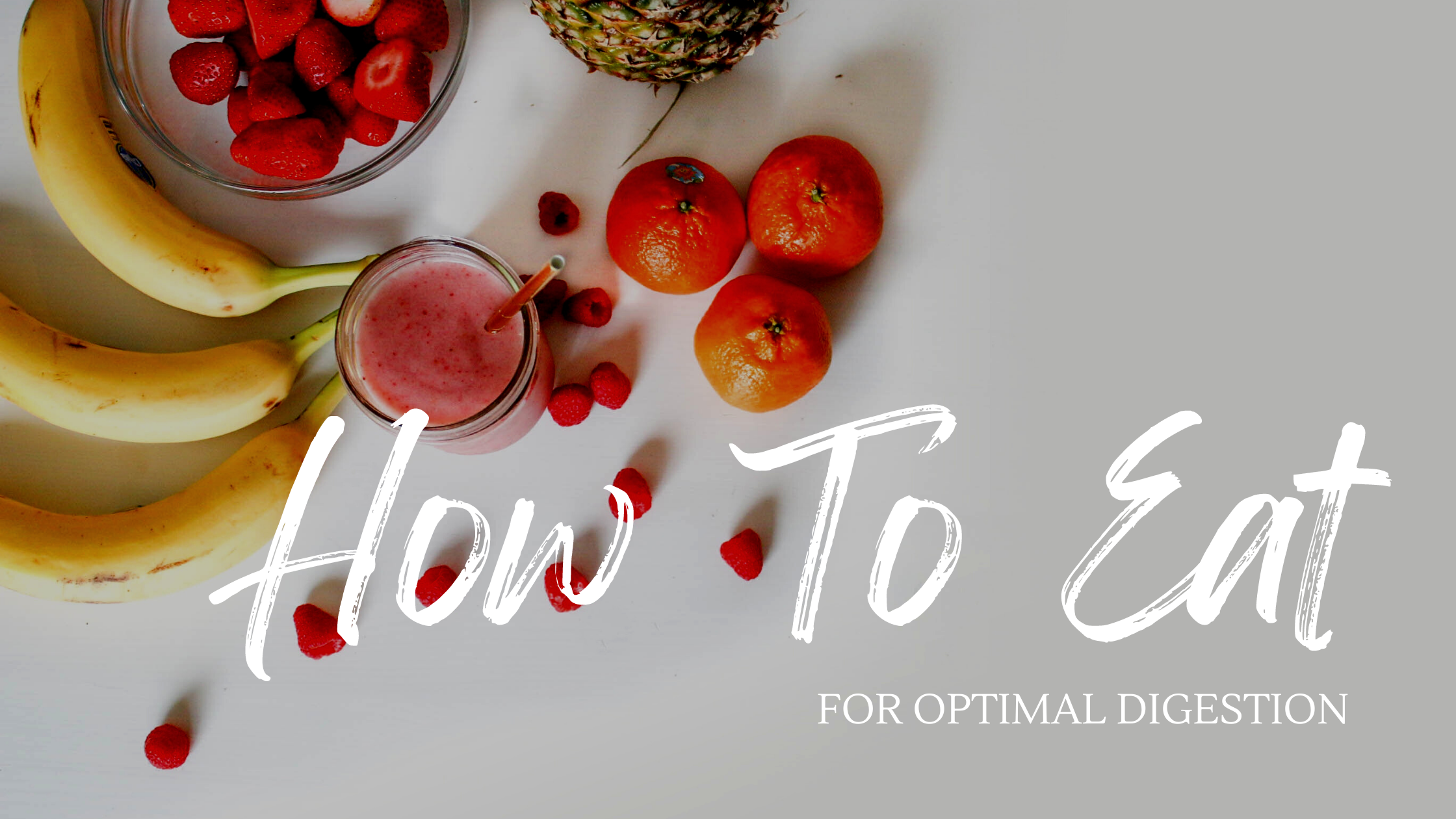How to Eat for Optimal Digestion
It is becoming more commonly understood that it isn’t just what we eat that is important, but also how we eat. In order to be optimally nourished, we can follow some simple guidelines to improve our ability to digest our food and to assimilate nutrients from it:
Pay attention to how you feel as you eat
* How does your stomach respond to the food as it first enters your body?
* At what point do you start to feel full?
* How do you respond emotionally to the food?
* How does the food you eat echo through your body afterwards?
Paying a little attention provides us with subtle cues about what foods work for us, what don’t, how we digest these foods and what our body really wants. You don’t have to turn this into homework or take notes. Just noticing, you will naturally make those connections.
Eat a little slower
If you are a fast eater, try slowing it down by 5%. No need to count your chews or to eat unnaturally slow, just a little slower. It can be useful to place your fork down between bites. Enjoy your food.
Be OK with leaving a little food on your plate
This is a tough one for many people! That feeling of guilt or wastefulness. If you are one of those people who frequently feel overstuffed because you had to finish everything on your plate, experiment with sometimes leaving a little and see if you can be OK with it. You can also put less food on your plate, check to see if you are full after eating this, and go back for seconds if needed.
Did you know that, in Italy, leaving a little food on your plate is a sign that you are finished eating? If you eat it all, your host will serve you more food!
If your digestion is particularly sensitive, eat mostly lightly cooked foods, less raw
Cooking starts to break down the fibres and proteins, rendering the food easier to digest.
Enjoy your heaviest meal at midday
In our culture, dinner time is usually when we gather the family together and eat a heavier meal. Heavier doesn’t nessesarily mean larger, but it could. I mean heavier on digestion. Those denser foods, like meat and dairy.
If you frequently go to bed feeling heaviness in your belly, consider having your heavier meal at midday. This allows the meal time to digest and sustains us through until the evening meal. Eastern medicine posits that our digestion is strongest when the sun is highest in the sky.
If this isn’t possible, try a smaller porition of heavier foods at dinner and be sure to eat 2 -3 hours before bedtime.
Allow 3 – 5 hours between meals, or until you feel genuine hunger
Generally, it is suggested that people allow 3 – 5 hours between meals. Obviously, this depends on the size or quality of your meal, and the speed of your digestion, but you should feel genuine hunger in your belly. A slight hollowness or readiness for food. If this cue is missing for you - which it can for some people for various reasons - use the 3 – 5 hours as a guideline.
Avoid eating when you’re feeling upset or emotional
When we are in a heightened emotional state, our body redirects resources from our digestion to other areas of our body. This is not an optimal time for digesting food and eating at this time can result in indigestion. Allow yourself some time to simmer down and process whatever it is you’re dealing with before eating. You don’t have to be perfectly equanemous to eat (we’d all be skipping meals all the time!) but just so you’re not so emotionally charged.
Avoid drinking icy liquids with meals
Icy cold drinks are thought to dampen and slow down digestion. If you like a drink with your food, room temperature or warm liquid is better.
Add a carminative herb to all meals
Carminatives redirect the body’s attention to the digestive organs, assisting the digestive process. We usually add them to our foods anyway, so this isn’t too difficult to do.
Carmintives include black pepper, ginger, hing/aseofotida, fennel seeds, cinnamon, mint, rosemary, cumin, coriander.
Eat foods that you enjoy eating
Last but not least, eat food that you actually enjoy eating!
The more you enjoy, the more you savour, the more present you are. You will feel rejuvenated and relaxed after your meal.
Written by Erica Cooke
